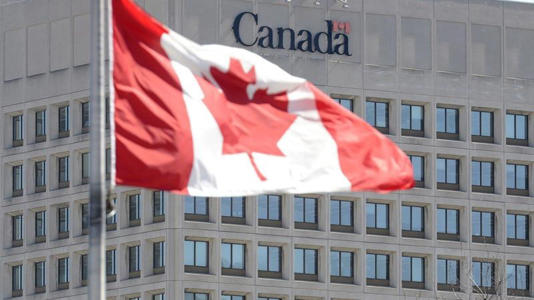
OTTAWA — The Department of National Defence broke the federal whistleblower law by not being transparent about the results of investigations into wrongdoing, the federal integrity watchdog said in a report released Tuesday.
Joe Friday, the public sector integrity commissioner, shared what he called “disturbing” findings that both the Defence Department and the Canadian Armed Forces have a pattern of keeping Canadians in the dark over internal investigations of wrongdoing.
Friday’s report said that when his office launched an investigation in 2020, it had been five years since the department had updated a web page about public disclosures of wrongdoing. Whistleblower reports had led to three findings of wrongdoing during time, but information about the cases was not made public until 2021 and 2022.
“The evidence demonstrated a pattern in the internal disclosure process at DND and in the Forces,” Friday said in a public statement.
“Founded cases of wrongdoing were not being published, and in some cases, whistleblowers were not being informed of the outcome of internal investigations in a timely manner. Witnesses noted they had many concerns with how cases were being handled.”
In one case, a Defence Department employee made an allegation of wrongdoing in 2016 and, despite attempts to follow up twice, only learned the results of the investigation in 2022.
In another case, the investigation was completed in 2018 but the results were not made public for more than 43 months. Friday’s final report said it is unclear whether the results would have ever been published had his office not begun to investigate.
That complaint involved an allegation that sentences ordered at courts martial were not being carried out in a timely manner, if at all.
“I find that such a delay results in a significant adverse impact on governmental transparency, oversight and accountability,” Friday wrote in the report.
Witnesses told the integrity commissioner’s office that files had previously been given to management for a final decision and were never seen again, or that the release of cases were delayed for no reason.
Friday said disclosing wrongdoing is extremely difficult and courageous, and whistleblowers have the right to be kept informed. He called that transparency fundamental to the nature of the whistle-blowing regime.
The report concluded that the delays in these cases were not the result of “trivial wrongdoing or minor negligence,” but rather “a serious error that is not debatable among reasonable people.”
The report does not detail the whistleblower’s allegations or the results of those internal investigations.
Friday recommends training for all Defence Department senior managers to ensure they are familiar with the Public Servants Disclosure Protection Act, which governs whistleblower protection in the public service.
The Canadian Armed Forces is excluded from that legislation, although it is required to have its own whistleblower protection mechanisms and similar rules regarding the disclosure of information about findings.
He also recommends the department conduct regular audits of the internal disclosure program, as well as evaluate it every year for the next three years to ensure the deputy minister is satisfied it is being managed effectively.
The Defence Department has committed to implementing them all.
“DND will be using the findings and recommendations from the Commissioner to guide ongoing efforts and inform broader work on professional conduct as well as improvements to the culture of the defence team,” Bill Matthews, the deputy minister of defence, said in a written response to the integrity commissioner.
A spokesperson for Defence Minister Bill Blair did not respond to a request for comment on Tuesday.
In a written statement, a spokesman for the department added that it is working to improve its timelines for closing investigations.
In a previous survey of public servants, the integrity commissioner’s office learned that only 49 per cent of federal employees feel they can make a whistleblower complaint without fear of reprisal.
Research done by his office “demonstrates that public servants believe that there is no point in blowing the whistle, because there will be no consequences for wrongdoers and things will never change,” Friday wrote.
“The combination of fear and cynicism is a powerful disincentive to whistleblowers.”
Source: Sarah Ritchie, The Canadian Press
